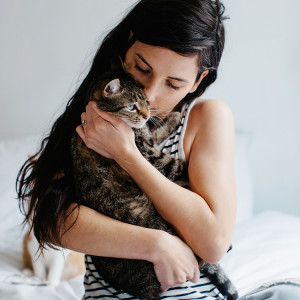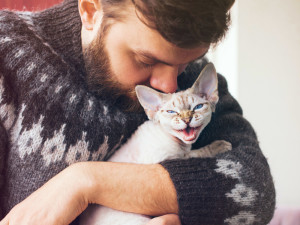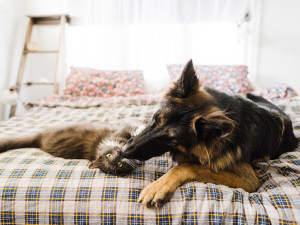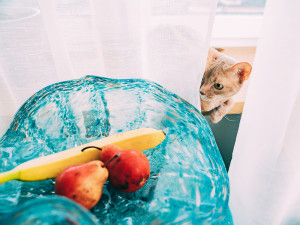5 Signs You Should Get Your Cat a Cat
Because 8 paws are better than 4 when it comes to pushing stuff off the table
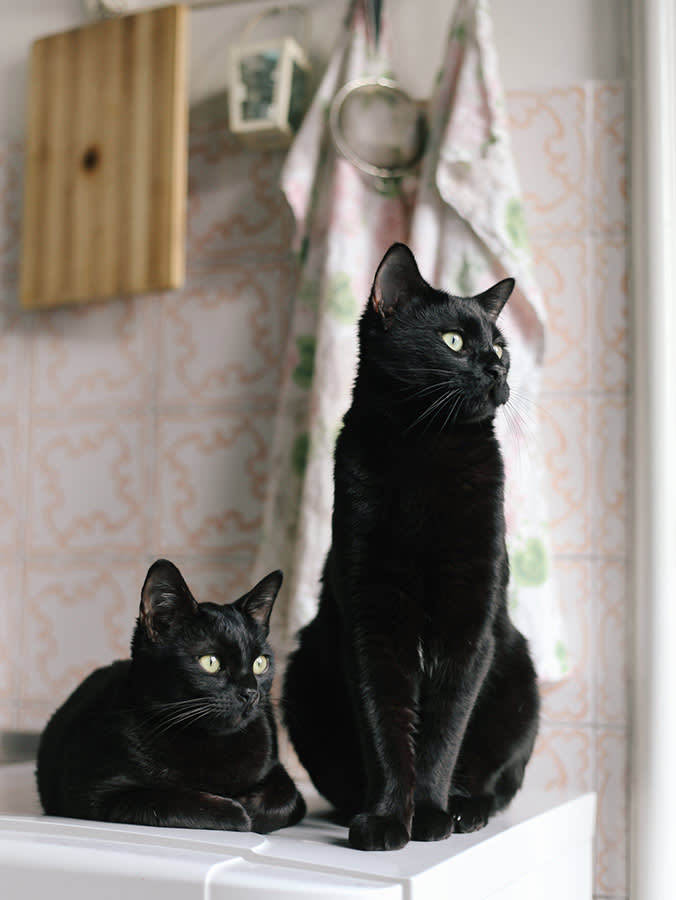
Share Article
Clearly, you’re willing to do anything to make your cat happy, but there’s one thing you can’t do, and that’s... be a cat. (Nice try with those fake ears, though.) That means when it comes to giving them cat company, you’ll have to outsource. But should you get another cat to be a buddy for the cat you already have? If your cat likes other cats and you already want another one, why not?
Still, if you’re on the fence but wondering what’s best for your cat, how can you tell if your cat may need a feline companion? Here are the top five clues that it would be wise to add a cat to your family for the sake of your pet (with the full understanding that you’ll benefit from the extra love and friendship, too).
Your cat wants constant attention
Neediness and clinginess are among the most common signs that your cat needs a feline companion. If they’re meowing constantly and seeking your attention all the time, they may be letting you know they need a friend who is available constantly. Many of us are only able to be with our cats before and after work and at the weekend (someone has to earn the money for treats and all the best cat toys.) If your cat is following you around and won’t leave you alone even after long play sessions, you may have a cat who needs a feline companion.
You are blessed with a playful and affectionate cat
If this describes your cat’s personality, a feline companion may be a great way to improve their quality of life – no matter how good it already is. Social butterflies (of every species) adore having another lovebug around, and there’s nothing quite like a member of your own species to make you feel loved, understood and happy. That, in no way, takes away from the loving, fulfilling relationship you have with your cat. Cats have long been misrepresented as solitary, but they are social creatures. Allowing them to share their homes and their lives with another kindred spirit is a special gift you can provide for them.
A cat has left your household
When a cat departs, those they leave behind often miss their old friend. Whether a cat has left your home because they were a foster cat who’s been adopted, because a flatmate moved out with that cat, or because they have died, their companion cats miss their old friend and grieve that relationship. While no relationship can replace a previous friendship, a new pal can help fill the void.
Your cat has developed one or more behavioural changes
If your cat is acting in a different manner than usual, the reason may be a lack of feline interaction. Common behavioural changes associated with a cat who could do with a feline companion include a lapse in grooming or excessive grooming, increased destructiveness around the house, sleeping more than usual or being unable to settle down at all, listlessness, overeating or refusing to eat and excessive vocalising. No single behavioural change is a sure sign that a friend will help, and ruling out any medical reasons for the change is an essential first step. However, if there is not a physical cause behind a behavioural change, introducing a new cat to your family may help.
The cat in your life is a kitten
Experts agree that it is best to adopt kitten in pairs (or even threes) but not alone. The behavioural challenges of single kitten syndrome can generally be avoided by raising kittens with other kittens. Kittens benefit from having a feline companion, and because they are less likely to bite, scratch, have litter box issues, vocalise excessively or demand your attention constantly if they have a friend around, you also stand to benefit.
If these descriptions fit your situation, you may require the help of another cat, and that’s worth celebrating. You and your cat both gain a new friend while offering that new friend a home that is filled with love just waiting to be given.

Karen B. London, PhD, CAAB, CPDT-KA
Karen B. London, Ph.D., is a Certified Applied Animal Behaviorist and Certified Professional Dog Trainer who specializes in working with dogs with serious behavioral issues, including aggression, and has also trained other animals including cats, birds, snakes, and insects.
Related articles
![dark-haired woman hugging cat that has imprinted on her]()
10 Signs Your Cat Has Imprinted On You
Feeling like you have a little shadow these days? A cat behaviourist explains why that’s happening
![A German shepherd and cat play affectionately in a bed.]()
The Real Differences Between Cats and Dogs
There’s no winning this argument, but here’s what you should know about parenting each perfect pet
![cat meowing]()
The Cat’s Meow – What Does it All Mean?
How to decode your cat’s love language when one meow has many meanings
![Cat behind a curtain attempting to get fruit in blue bowl]()
What Fruits Can Your Cat Feast On?
Pass the fruit bowl – it’s treat time

